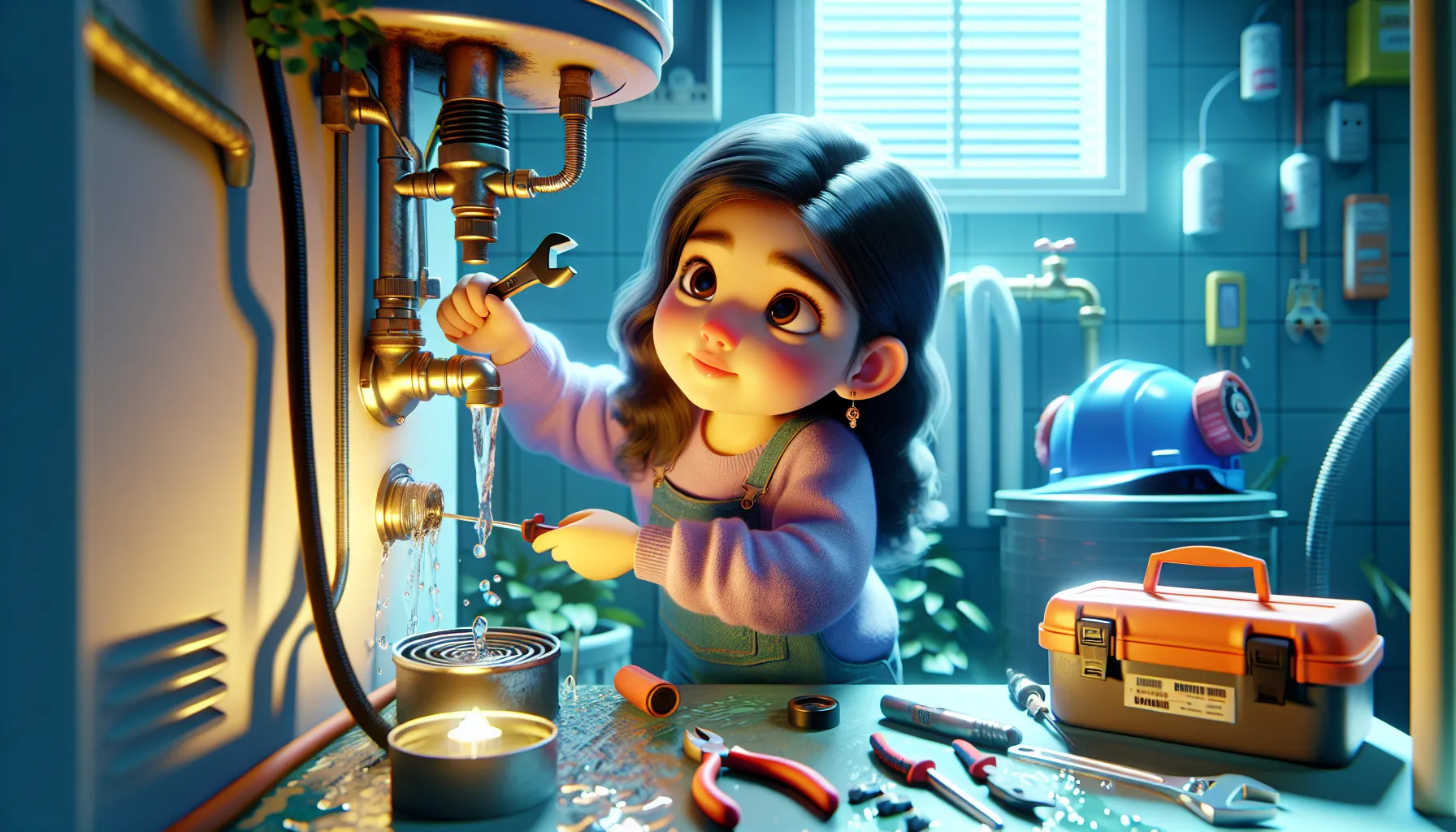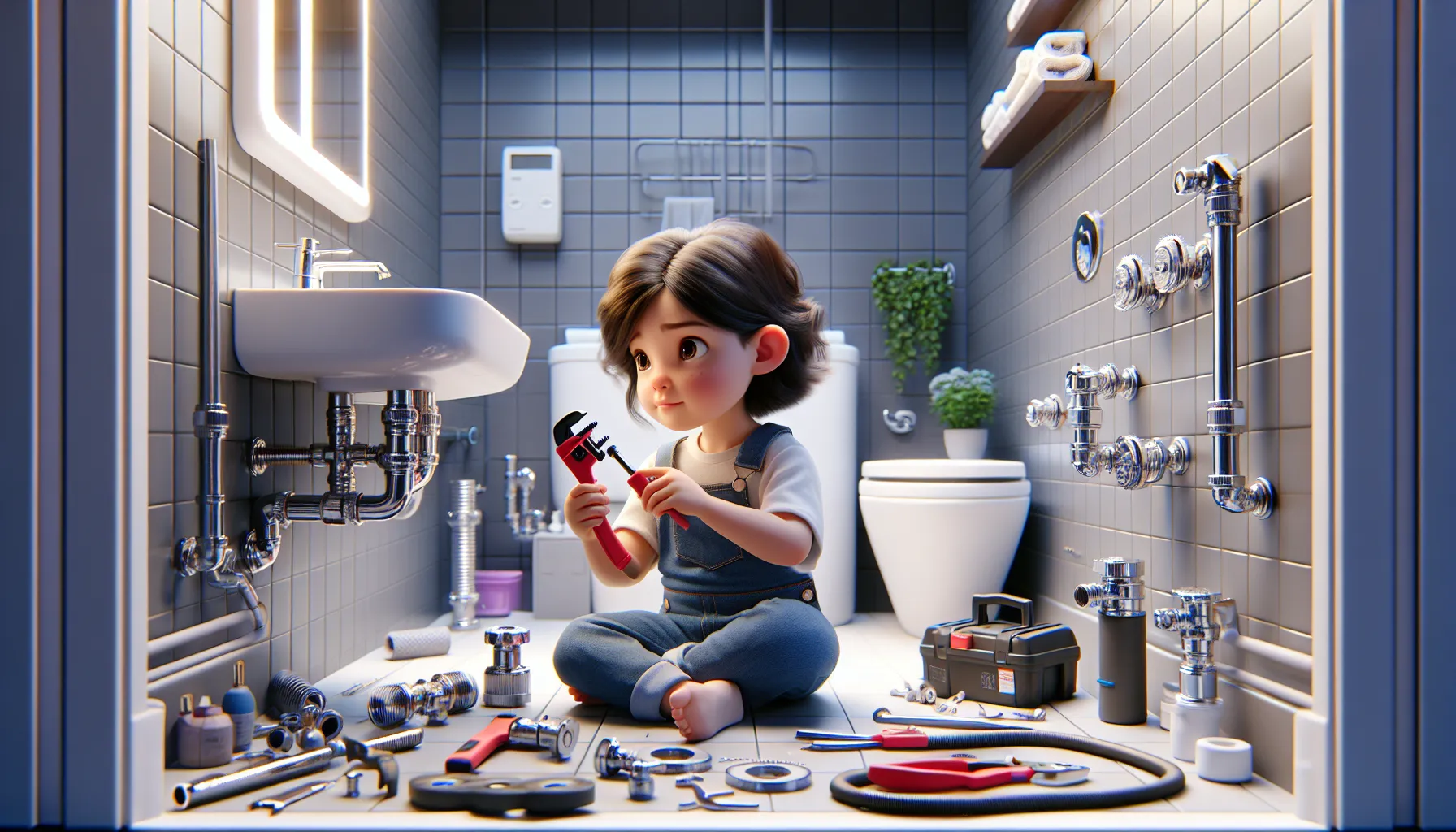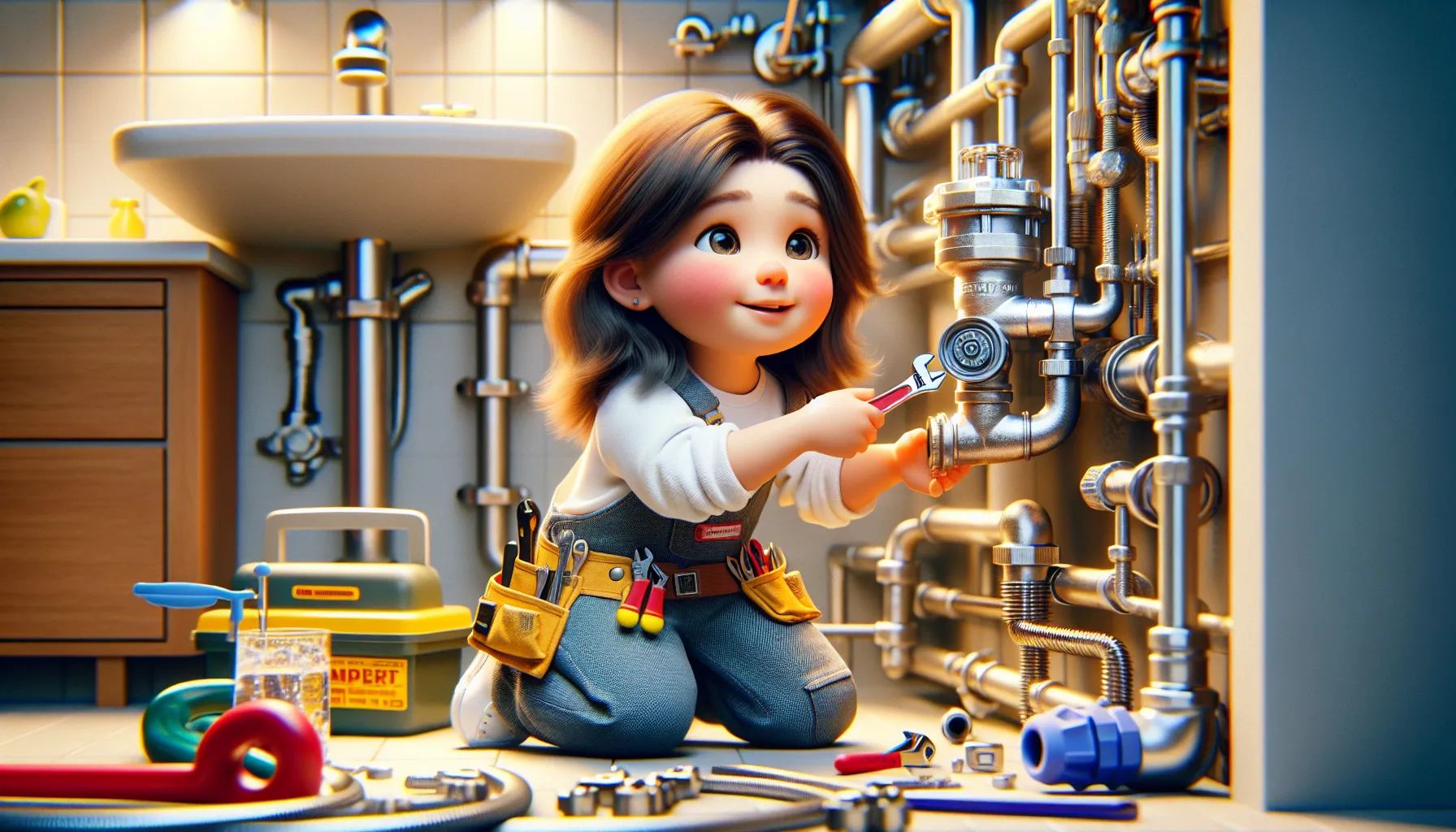The water heater is an imperative appliance in any home, providing hot water for showers, dishes, and laundry. However, like any machinery, it can experience issues that disrupt its functionality. One of the most common problems is a leaking tank, which can lead to water damage and mold growth. Another issue is lack of hot water, which can be caused by a variety of factors such as a faulty heating element or sediment buildup.
Key Takeaways:
- Inadequate hot water: This common issue can be caused by a malfunctioning heating element, thermostat, or sediment buildup in the tank.
- Strange noises: Popping, rumbling, or banging sounds coming from the water heater may indicate sediment buildup, which can be resolved by flushing the tank.
- Leaking tank: A leaking water heater tank is a serious problem that usually requires professional repair or replacement to prevent water damage.
- Low water pressure: Sediment buildup in the pipes or a faulty pressure reducing valve can lead to low water pressure, affecting the performance of the water heater.
- Smelly or discolored water: Foul odors or rusty water can be a sign of bacteria growth or corrosion in the tank, which may require flushing and disinfection.
Recognizing Water Heater Problems
Now, identifying water heater problems early on can save you from costly repairs or potential water damage in your home. Most water heaters show warning signs before a complete breakdown, so it’s crucial to be vigilant and address any issues promptly.
Identifying Signs of Water Heater Failure
Failure to deliver hot water, strange noises coming from the tank, water leaks around the unit, or discolored water are all indicators that your water heater may be failing. If you notice any of these signs, it’s best to consult a professional to diagnose the problem and recommend the necessary repairs or replacement.
The Life Expectancy of Water Heaters and Maintenance Tips
Heaters generally last between 8 to 12 years, depending on the quality of the unit and proper maintenance. To extend the life of your water heater, consider these maintenance tips:
- Regular flushing of the tank to remove sediment buildup
- Checking and replacing the anode rod when needed
- Insulating exposed pipes to prevent heat loss
Any negligence in maintenance can shorten the lifespan of your water heater.
With proper care and attention, your water heater can continue to provide you with reliable hot water for years to come. Stay alert for any signs of trouble and address them promptly to avoid more significant issues down the road.
Insufficient Hot Water Supply
Diagnosing Causes of Inadequate Hot Water
Any homeowner dreads the experience of running out of hot water, especially during the cold winter months. When faced with insufficient hot water supply, it’s crucial to diagnose the root cause of the issue to find an effective solution.
Step-by-Step Solutions to Increase Hot Water Availability
To address issues of inadequate hot water supply, it’s crucial to follow a systematic approach to troubleshooting and resolving the problem. By taking the following step-by-step solutions, you can improve the availability of hot water in your home.
Step-by-Step Solutions to Increase Hot Water Availability:
| Step 1 | Check the temperature setting on the water heater. Adjust if necessary to ensure it meets your household’s hot water needs. |
| Step 2 | Inspect the heating elements or burner on the water heater for any defects or malfunctions. Replace if needed to restore proper heating. |
An efficient water heater is crucial for the comfort and convenience of your household. By following these step-by-step solutions, you can ensure a steady supply of hot water for your daily needs.
Solutions for Inadequate Hot Water Supply:
| Important | Regular maintenance of the water heater can help prevent issues of inadequate hot water supply. |
| Dangerous | Operating a water heater with insufficient hot water supply can lead to discomfort and inconvenience for residents. |
| Positive | By addressing the root cause of inadequate hot water supply, you can improve energy efficiency and save on utility costs. |
Temperature Issues
After the installation of a water heater, homeowners may experience temperature issues that affect their comfort. These problems can range from water being too hot to too cold, causing inconvenience and frustration. Understanding the common causes of temperature issues and how to troubleshoot them can help address these issues effectively.
| Troubleshooting Too Hot or Too Cold Water Problems | Adjusting Thermostat Settings for Optimal Performance |
Troubleshooting Too Hot or Too Cold Water Problems
Troubleshooting water temperature problems involves checking various factors that could be causing the issue. If the water is too hot, the thermostat setting may need adjustment or there could be a malfunction in the thermostat itself. On the other hand, if the water is too cold, it could be due to a faulty heating element or a sediment build-up in the tank affecting the heating process. Fluctuating water temperatures can also be a sign of mineral deposits accumulating in the tank.
Adjusting Thermostat Settings for Optimal Performance
For optimal performance of your water heater, it is necessary to adjust the thermostat settings correctly. The recommended temperature setting for most households is 120 degrees Fahrenheit. This setting helps prevent scalding while providing sufficient hot water for daily use. Always consult the manufacturer’s instructions for specific guidance on adjusting the thermostat settings for your particular water heater model.
Water heater thermostat settings play a crucial role in maintaining a balance between energy efficiency and hot water availability. Setting the thermostat too high can lead to energy wastage and increase the risk of scalding injuries, while setting it too low can result in inadequate hot water supply. By adjusting the thermostat settings to the optimal level, homeowners can ensure safe and efficient operation of their water heaters.
Unusual Noises from Water Heater
For many homeowners, a water heater is like a silent workhorse, providing hot water on demand without much fanfare. However, if you start hearing strange noises emanating from your water heater, it could be a cause for concern. Understanding the root of these unusual sounds is crucial in determining whether a simple fix or a professional intervention is needed.
Deciphering the Causes of Popping, Knocking, and Hissing Sounds
One common cause of popping or knocking sounds in a water heater is the buildup of sediment at the bottom of the tank. When water is heated, minerals in the water can settle and harden at the tank’s base. This creates a barrier between the heating element and the water, causing it to overheat and create noises as the bubbles escape through the sediment. Hissing sounds, on the other hand, could indicate a leak somewhere in the system, leading to steam escaping from the water heater.
Effective Solutions for Quietening Your Water Heater
Effective solutions for quieting your water heater include regularly flushing out the tank to remove sediment buildup. This can be done by draining a few gallons of water from the tank a few times a year. Another solution is to insulate the pipes connected to the water heater to reduce the noise caused by expanding and contracting metal. If the hissing sound persists, it is crucial to inspect the water heater for leaks and get them repaired promptly to prevent any further damage.
Effective maintenance and timely repairs can not only quieten your water heater but also extend its lifespan. Ignoring these unusual noises can lead to more serious issues down the line, potentially resulting in leaks, water damage, or even a full system breakdown. By addressing the root cause of the noises promptly, you can ensure your water heater continues to operate efficiently and quietly for years to come.
Leaking Water Heaters
Despite being a common issue, a leaking water heater can cause significant damage if not addressed promptly. It is crucial to identify the source of the leak and take appropriate repair measures to prevent further leaks and water damage in your home.
Identifying the Source of Leaks
Source: When dealing with a leaking water heater, the first step is to determine where the leak is coming from. Common sources of leaks can include the pressure relief valve, inlet and outlet connections, the drain valve, or the tank itself. It is vital to visually inspect the water heater and check for any pooling water or dampness around these components to pinpoint the source of the leak.
Repair Strategies for Different Leak Locations
With various potential leak locations in a water heater, repair strategies will vary based on the source of the leak. If the pressure relief valve is leaking, it may need to be replaced. Leaks from the inlet or outlet connections can often be fixed by tightening or resealing the connectors. A leaking drain valve may require tightening or replacing the valve itself. In the case of a leaking tank, it is crucial to address the issue immediately as a leaking tank can lead to significant water damage and potential flooding in your home.
To ensure the safety of your home and prevent further damage, it is recommended to contact a professional plumber if you are uncertain about how to repair a leaking water heater. Ignoring a leaking water heater can result in increased utility bills, water damage, and potential mold growth. By promptly identifying and addressing the source of the leak, you can prevent costly repairs and maintain the efficiency of your water heater.
Discolored Water and Odor Issues
Understanding the Causes of Rusty or Smelly Water
With the advent of modern water heaters, homeowners are accustomed to having access to clean, clear water for their daily needs. If you notice that your water has a rusty tint or unpleasant odor, it can be a cause for concern. These issues are typically caused by a buildup of sediment or rust in your water heater tank, leading to discoloration and strange smells.
Filtration Solutions and System Flushing Techniques
Causes When faced with discolored water or odor issues, it’s important to address the root cause promptly to ensure the continued efficiency and safety of your water heater. One effective solution is to install a water filtration system to remove impurities and odors from your water supply. Additionally, regular system flushing techniques can help to remove built-up sediment and rust from your water heater, improving water quality and reducing the risk of further issues.
Filtration By implementing these filtration solutions and system flushing techniques, you can enjoy clean, clear water free from rust and odors. Regular maintenance and monitoring of your water heater can help prevent future problems and ensure a steady supply of high-quality water for your household needs.
Preventative Maintenance and Professional Inspections
Regular Maintenance Tasks to Extend Water Heater Life
Heater maintenance is crucial to ensure your water heater operates efficiently and lasts for years to come. One necessary task is flushing the tank at least once a year to remove sediment buildup that can cause corrosion and reduce heating efficiency. Additionally, checking the pressure relief valve and sacrificial anode rod for proper functioning is important in preventing leaks and extending the lifespan of your water heater.
When to Call a Professional: Recognizing the Signs
Inspections by a professional are recommended if you notice any signs of trouble with your water heater. These signs include rusty or discolored water, strange noises coming from the tank, leaks around the unit, or a decrease in hot water supply. Ignoring these signs can lead to more severe problems and potential safety hazards.
Plus, regular professional inspections can help identify and address issues before they escalate, saving you time and money in the long run. A qualified technician can provide expert recommendations on repairs or replacement options based on the condition of your water heater.
To wrap up
As a reminder, common water heater problems can include leaks, loud noises, or insufficient hot water. These issues can often be resolved by checking for leaks, flushing the tank, or adjusting the temperature settings. It’s important to address these issues promptly to prevent further damage and ensure the continued efficiency of your water heater.
If you encounter persistent problems with your water heater, it may be best to seek professional assistance. A qualified technician can help diagnose the issue and provide the necessary repairs or replacements to restore your water heater to optimal functioning. By staying proactive and addressing issues early on, you can prolong the lifespan of your water heater and enjoy reliable access to hot water for years to come.
FAQ
Q: What are some common water heater problems?
A: Some common water heater problems include no hot water, not enough hot water, strange noises, leaks, and discolored water.
Q: Why is my water heater not producing hot water?
A: If your water heater is not producing hot water, it could be due to a faulty heating element, a broken thermostat, sediment buildup, or a pilot light issue.
Q: How can I fix a water heater that is making strange noises?
A: Strange noises coming from your water heater could be caused by sediment buildup, loose heating elements, or a failing heating element. Flushing the tank to remove sediment or tightening loose parts may help resolve the issue.
Q: What should I do if my water heater is leaking?
A: If your water heater is leaking, it is crucial to turn off the power and water supply to the unit immediately. The leak could be due to a variety of reasons such as a damaged tank, loose connections, or a corroded pressure relief valve. Contact a professional plumber to assess and fix the issue.
Q: How can I address discolored water coming from my water heater?
A: Discolored water from your water heater could be a sign of rust or sediment buildup in the tank. Flushing the tank to remove the sediment or replacing the anode rod to prevent rusting may help improve the water quality. If the issue persists, it is recommended to consult a professional plumber.



